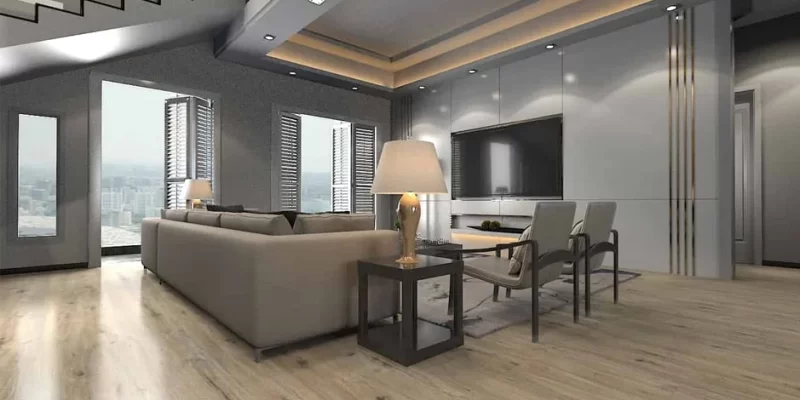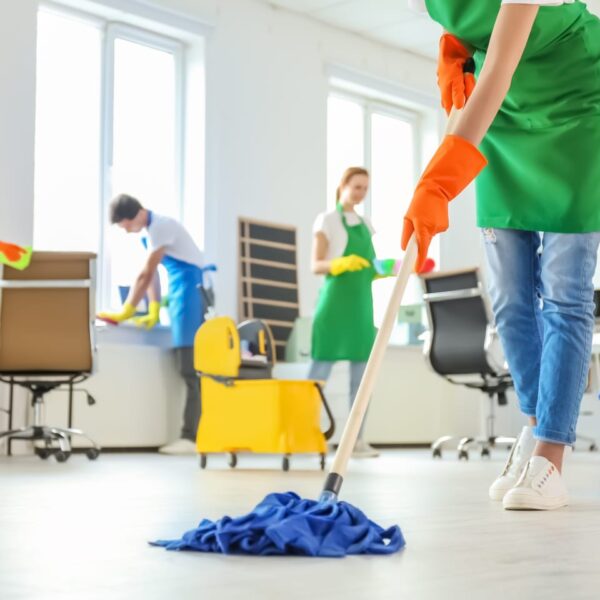
If you’re looking for a versatile and durable flooring option, SPC flooring might just be the perfect fit for your needs. SPC, or Stone Plastic Composite, is a type of rigid core flooring known for its remarkable durability, water resistance, and ease of installation. In this guide, we’ll delve into what SPC flooring is, its advantages, applications, installation process, maintenance tips, and how it compares to other popular flooring options.
Introduction to SPC Flooring
What is SPC Flooring?
SPC flooring is a type of engineered flooring that combines limestone and stabilizers to create a remarkably sturdy core. This core is then topped with a printed vinyl layer and a wear layer, resulting in a flooring option that is not only durable but also visually appealing.
Composition of SPC Flooring
The core of SPC flooring typically consists of about 60% limestone powder, polyvinyl chloride (PVC) resin, and stabilizers. This composition gives SPC flooring its exceptional stability and strength, making it resistant to dents, scratches, and stains.
Key Features of SPC Flooring
SPC flooring stands out due to several key features, including its water resistance, durability, easy installation, and affordability. These features make it a popular choice for both residential and commercial applications.
Advantages of SPC Flooring
Durability
One of the primary advantages of SPC flooring is its exceptional durability. Thanks to its robust core and wear layer, SPC flooring can withstand heavy foot traffic, making it ideal for high-traffic areas such as hallways, kitchens, and commercial spaces.
Water Resistance
SPC flooring is highly water-resistant, making it suitable for areas prone to moisture, such as bathrooms, kitchens, and basements. Unlike traditional hardwood flooring, SPC flooring will not warp, swell, or buckle when exposed to water, making it a practical choice for humid environments.
Easy Installation
Another advantage of SPC flooring is its ease of installation. SPC planks typically come with a click-lock mechanism, allowing for straightforward installation without the need for adhesives or specialized tools. This makes it an excellent choice for DIY enthusiasts or those looking to save on installation costs.
Maintenance
Maintaining SPC flooring is a breeze. Regular sweeping and occasional mopping with a mild detergent are all it takes to keep your SPC floors looking pristine. Unlike hardwood flooring, SPC flooring does not require refinishing or sealing, saving you time and money on maintenance.
Affordability
Compared to other flooring options such as hardwood or tile, SPC flooring is relatively affordable. Its durability and low maintenance requirements make it a cost-effective choice in the long run, making it an attractive option for budget-conscious homeowners and business owners alike.
Applications of SPC Flooring
Residential Use
SPC flooring is gaining popularity in residential settings due to its durability, water resistance, and wide range of styles and designs. It is commonly used in living rooms, bedrooms, kitchens, and even bathrooms, providing a practical and stylish flooring solution for modern homes.
Commercial Use
In commercial settings, where durability and aesthetics are paramount, SPC flooring shines. Its ability to withstand heavy foot traffic, spills, and stains makes it an ideal choice for retail spaces, offices, restaurants, and other high-traffic areas.
Comparison with Other Flooring Options
SPC vs. Laminate Flooring
While both SPC and laminate flooring are affordable and easy to install, SPC flooring offers superior water resistance and durability, making it a better choice for areas prone to moisture or heavy use.
SPC vs. WPC Flooring
While both SPC and WPC (Wood Plastic Composite) flooring are waterproof and durable, SPC flooring tends to be more rigid and stable, making it a better choice for areas with heavy foot traffic.
SPC vs. Hardwood Flooring
Unlike hardwood flooring, which requires regular maintenance and is susceptible to water damage, SPC flooring is waterproof, scratch-resistant, and easy to maintain, making it a practical alternative for homeowners seeking the look of hardwood without the hassle.
SPC vs. Tile Flooring
While both SPC and tile flooring are water-resistant and durable, SPC flooring offers a warmer and more comfortable feel underfoot, making it a popular choice for residential settings.
Installation Process of SPC Flooring
Preparation
Before installing SPC flooring, ensure that the subfloor is clean, dry, and level. Remove any existing flooring and repair any cracks or imperfections in the subfloor.
Installation Steps
- Begin by acclimating the SPC planks to the room’s temperature and humidity.
- Lay down an underlayment to provide cushioning and noise reduction.
- Start laying the SPC planks from one corner of the room, ensuring a tight fit between each plank.
- Use a tapping block and rubber mallet to secure the planks in place.
- Trim the last row of planks to fit using a utility knife or saw.
- Install transition strips and moldings as needed to complete the installation.
Finishing Touches
Once the SPC flooring is installed, install baseboards or quarter-round moldings to cover the expansion gap around the perimeter of the room. Clean the floors thoroughly to remove any dust or debris, and enjoy your new SPC flooring for years to come.
Maintenance Tips for SPC Flooring
Daily Cleaning
To keep your SPC flooring looking its best, sweep or vacuum regularly to remove dirt and debris. For deeper cleaning, use a damp mop with a mild detergent, avoiding harsh chemicals or abrasive cleaners that could damage the floor’s surface.
Preventive Measures
Place felt pads under furniture legs to prevent scratches and dents on your SPC flooring. Use mats or rugs in high-traffic areas to protect the floors from wear and tear, and promptly clean up spills to prevent staining.
Handling Tough Stains
For stubborn stains or spills, use a manufacturer-approved cleaner and a soft-bristled brush to gently scrub the affected area. Avoid using abrasive scrubbers or harsh chemicals, as these can damage the protective wear layer of the SPC flooring.
Conclusion
In conclusion, SPC flooring offers a winning combination of durability, water resistance, easy installation, and affordability, making it an excellent choice for both residential and commercial applications. Whether you’re looking to upgrade your home’s flooring or renovate a commercial space, SPC flooring provides a stylish and practical solution that will stand the test of time.
FAQs
- Is SPC flooring suitable for bathrooms? Yes, SPC flooring is highly water-resistant and is an excellent choice for bathrooms and other moisture-prone areas.
- Can SPC flooring be installed over existing flooring? In most cases, yes. SPC flooring can often be installed directly over existing hard surfaces, such as tile or hardwood, as long as the subfloor is level and in good condition.
- How long does SPC flooring typically last? With proper care and maintenance, SPC flooring can last upwards of 20 years or more, making it a long-lasting investment for your home or business.
- Can I install SPC flooring myself, or do I need to hire a professional? While SPC flooring is relatively easy to install, some DIY experience is recommended. If you’re unsure, it’s always best to consult with a professional installer to ensure a successful and long-lasting installation.
- Are there any environmental benefits to choosing SPC flooring? SPC flooring is typically made from recycled materials and is fully recyclable at the end of its lifespan, making it a sustainable choice for environmentally conscious consumers.

